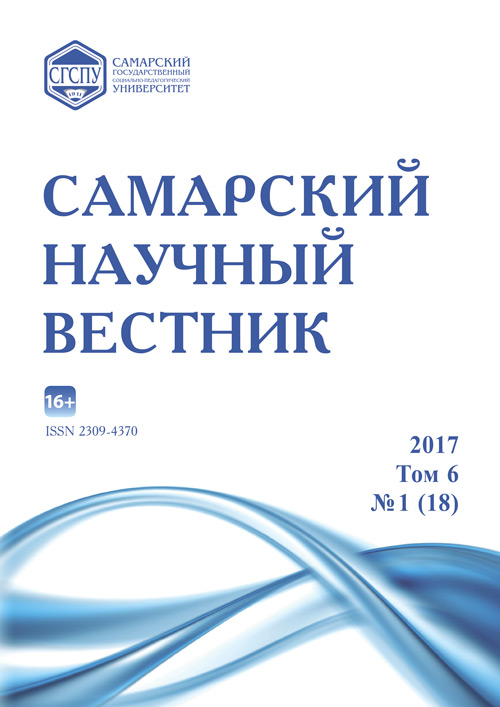Российско-чеченские взаимоотношения в XVI–XVII веках
- Авторы: Товсултанов Р.А.1, Галимова Л.Н.2, Оздамирова Э.М.1
-
Учреждения:
- Чеченский государственный университет
- Ульяновский институт гражданской авиации имени главного маршала авиации Б.П. Бугаева
- Выпуск: Том 6, № 1 (2017)
- Страницы: 100-104
- Раздел: 07.00.00 – исторические науки и археология
- URL: https://journal-vniispk.ru/2309-4370/article/view/21649
- DOI: https://doi.org/10.17816/snv201761203
- ID: 21649
Цитировать
Полный текст
Аннотация
В настоящей статье исследуются русско-чеченские взаимоотношения в XVI–XVII веках. Отмечается, что Кавказ попал в сферу российской внешней политики на этапе образования Русского централизованного государства. С присоединением Астраханского ханства Россия вышла к кавказским границам, и с этого времени кавказское направление займет ведущее место в восточной политике царского правительства. Кавказ в XVI в. являлся объектом острейшей борьбы между двумя самыми сильными державами тогдашнего Среднего Востока – Османской империей и Сефевидским Ираном – и одновременно плацдармом, откуда шла постоянная угроза для южных окраин России со стороны этих государств и Крымского ханства (вассала Порты). Укрепление России на кавказских землях могло стать наиболее надежным средством в обеспечении безопасности юга России. Так что в XVII и в XVII вв. Северный Кавказ представлял для России интерес в основном военно-стратегический, или, говоря современным языком, геополитический. Сама Чечня попала под влияние России в 1567 году, когда был заложен первый русский военизированный Терский город на Северном Кавказе. Для народов Северного Кавказа и Чечни появление русской крепости на их землях имело большое политическое значение. Таким образом, в силу сложившейся ситуации для России жизненно необходимо было укрепиться на Северном Кавказе, так как на этой территории мог закрепиться враг (Иран и Турция), что было небезопасно для южных ее границ. Именно в этот период (конец XVI в.) устанавливаются тесные военно-политические связи московского правительства с чеченцами. Интерес московского правительства к Чечне объяснялся, прежде всего, ее географическим положением – непосредственным соседством с терскими городками и тем, что по ее территории проходили наиболее удобные пути сообщения с Грузией. Взаимоотношения Чечни и России в конце XVI – первой половине XVII в. – почти идеальная для тех условий и того времени «модель» мирного сближения чеченцев с московским государством. Российские власти не вмешивались во внутренние дела чеченских обществ, не навязывали им свои порядки и законы, довольствуясь выдачей аманатов, выплатой ясака и, в случае необходимости, временной воинской службой. Все это привело к тому, что в XVII в. происходит установление союзнических отношений обществ Чечни с Россией. Однако в самом конце XVII в. русско-кавказские связи значительно ослабевают.
Ключевые слова
Полный текст
Открыть статью на сайте журналаОб авторах
Рустам Алхазурович Товсултанов
Чеченский государственный университет
Email: rustam-tovsultanov@mail.ru
кандидат исторических наук, доцент кафедры новой и новейшей истории
Россия, г. ГрозныйЛилия Надиповна Галимова
Ульяновский институт гражданской авиации имени главного маршала авиации Б.П. Бугаева
Автор, ответственный за переписку.
Email: galina_200475@mail.ru
доктор исторических наук, профессор кафедры гуманитарных и социальных дисциплин
Россия, г. УльяновскЭлиза Мусатовна Оздамирова
Чеченский государственный университет
Email: eliza1976@mail.ru
старший преподаватель кафедры новой и новейшей истории
Россия, г. ГрозныйСписок литературы
- Гродненский Н. Первая чеченская. История вооруженного конфликта. Мн., 2007. 720 с.
- Ибрагимов И.Г. Международная обстановка на Северном Кавказе и борьба горцев Дагестана за независимость в XVI–XVII вв. Дагестан в политике России, Ирана и Турции // Чеченцы в сообществе народов России. Т. 2. Назрань, 2008. С. 3–14.
- Усманов Л. Непокоренная Чечня. М., 1997. 414 с.
- Гапуров Ш.А., Абдурахманов Д.Б. Россия и Чечня (последняя треть XVIII – первая половина XIX века). Грозный, 2009. 522 с.
- Джон Данлоп. Россия и Чечня: история противоборства. Корни сепаратистского конфликта. М., 2001. 231 с.
- Гасанов М.Р. Некоторые вопросы политических связей Кавказа и России (XV–XVII вв.) // Чеченцы в сообществе народов России. Т. 1. Назрань, 2008. С. 53–62.
- Самойлов К. Заметки о Чечне. М., 2002. 88 с.
- Ахмадов Я.З. Международные и региональные политические предпосылки установления добрососедских русско-чеченских связей в XVI веке // Чеченцы в сообществе народов России. Т. 1. Назрань, 2008. С. 26–52.
- Магомадова Т.С. Чечня в политике России на Северном Кавказе XVI–XVII вв. // Чеченцы в сообществе народов России. Т. 2. Назрань, 2008. С. 114–131.
- Гаджиев Ф.Г., Эмирбекова Г.Д. К вопросу о торгово-экономических связях народов Дагестана и Чечни в XVII–XIX вв. // Чеченцы в сообществе народов России. Т. 1. Назрань, 2008. С. 287–290.
- Месхидзе Дж. И. Кавказ и Россия: политико-экономическое и культурно-религиозное взаимодействие (середина XVI – начало XVIII вв.) // Чеченцы в сообществе народов России. Т. 2. Назрань, 2008. С. 154–169.
- Архивное управление Правительства Чеченской Республики. Ф. 245. Оп. 1. Д. 20.
- Гапуров Ш.А., Музаев А.А. А. Авторханов и вопросы дореволюционной истории Кавказа // Чеченцы в сообществе народов России. Т. 1. Назрань, 2008. С. 11–18.
- Багаев М.Х. У истоков русско-чеченских добрососедских отношений // Чеченцы в сообществе народов России. Т. 1. Назрань, 2008. С. 202–208.
- Магомадова Т.С., Магамадов С.С. Некоторые историко-культурные последствия русско-чеченских отношений в XVI–XVII вв. // Чеченцы в сообществе народов России. Т. 2. Назрань, 2008. С. 132–136.
- Халитов В.Х. К истории российско-чеченских отношений в XVI – первой половине XIX вв. // Чеченцы в сообществе народов России. Т. 2. Назрань, 2008. С. 366–368.
- Гапуров Ш.А., Товсултанов Р.А. Страницы политической истории Чечни (конец XVIII – начало XIX вв.) // А.Г. Авторханов – ученый, публицист, общественный деятель: мат-лы междунар. науч. конф., посв. 100-летию со дня рождения А.Г. Авторханова (г. Грозный, 21–22 октября 2008 г.). Назрань, 2008. С. 95–110.
- Абдурахманов Д.Б., Гапуров Ш.А., Закриев Б.Б. Ранние этапы российско-чеченских политических взаимоотношений (XVI–XVII вв.) // Чеченцы в сообществе народов России. Т. 1. Назрань, 2008. С. 3–4.
- Моя Чечено-Ингушетия: краеведческое пособие по истории для учащихся средней школы Чечено-Ингушской АССР / под ред. Н.А. Тавакаляна. Грозный: Чеч.-Инг. кн. изд-во, 1970. 138 с.
- Гапуров Ш.А. Северный Кавказ в политике России в начале XIX века (1801–1818 годы). Нальчик: Эль-Фа, 2004. 489 с.
- Магарамов Ш.А. Восточный Кавказ во внешней политике России, Ирана и Турции в 50–70-е гг. XVII в. // Чеченцы в сообществе народов России. Т. 2. Назрань, 2008. С. 186–193.
Дополнительные файлы






